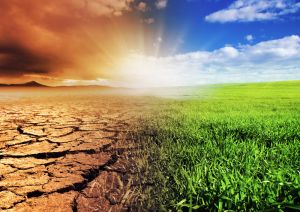Scientific reports on climate change highlight extreme climate phenomena, leading to a "atmosfear" - linking climate change with a terrifying vision of the future. In order to strengthen the adaptation actions, it is necessary to change the way of communication, emphasizing positive scenarios. Kundzewicz Z.W., Matczak P., Otto I., Otto F., 2020. From “atmosfear” to climate action, Environmental Science and Policy, Vol 105, Pages 75-83, https://doi.org/10.1016/j. envsci.2019.12.012
Recent studies show that scientific reports on climate change over-emphasize extreme climate phenomena. The fear of extreme weather events such as floods, droughts, fires, heat waves, frost waves, storms, and storms that wreak havoc with suffering, damage, and even death is understandable. The widespread awareness of the damage caused by extreme weather events means that people often refuse to imagine or feel fear of its possible consequences and try not to think about it. This negligence, in turn, leads to widespread climate fear that links climate change to a terrifying vision of the future. This article explains climate fear as a discursive practice, not a sphere of emotions. We investigate what motivates climate action and discuss the implications for climate policy. We analyze the factors that trigger fear in the event of heat waves and floods. Could uncertainty or fear motivate adaptation action to meet potential future challenges? Change is needed in the current public discourse on climate change: from fear to structured, global climate action to rapidly trigger the social and behavioral changes essential to achieving climate policy goals. The concepts of risk and harm largely shape the current debate on climate change. We argue that positive examples and news can better serve climate action. Flood risk reduction is an example of where public decision and scientific uncertainty intersect. Floods are a unique case of what can be done to reduce the risk as we know where river floods can occur. Finally, we explore the possibility of moving from an atmosphere of fear to climate action. We point out that discussions on adaptation to climate change and mitigation of climate change should involve a wide range of stakeholders. Stakeholder participation will help to find better solutions. For example, storing water in large, multifunctional reservoirs serves both to mitigate climate change and to adapt to its impact (including reducing the risk of flooding). However, it may harm the ecosystem. Hence most likely, ecologists will be against this measure. Thus, there is a need to organize platforms where different stakeholders can work on the trade-offs related to climate change adaptation decisions. Effective climate action requires institutional instruments that enable stakeholders to design acceptable solutions. The broader involvement of sociologists studying the range of behavioral influences, covering not only economics but also psychology and sociology, can help us understand the most effective motivating solutions for climate action from global to regional as well as local and individual levels. Climate change is anthropogenically driven and can only be solved by humans. Climate change research must take into account the fundamental drivers of human behavior. Behavioral research provides promising results for understanding the role of emotions in decision-making, which could prove helpful in creating better climate policies.
